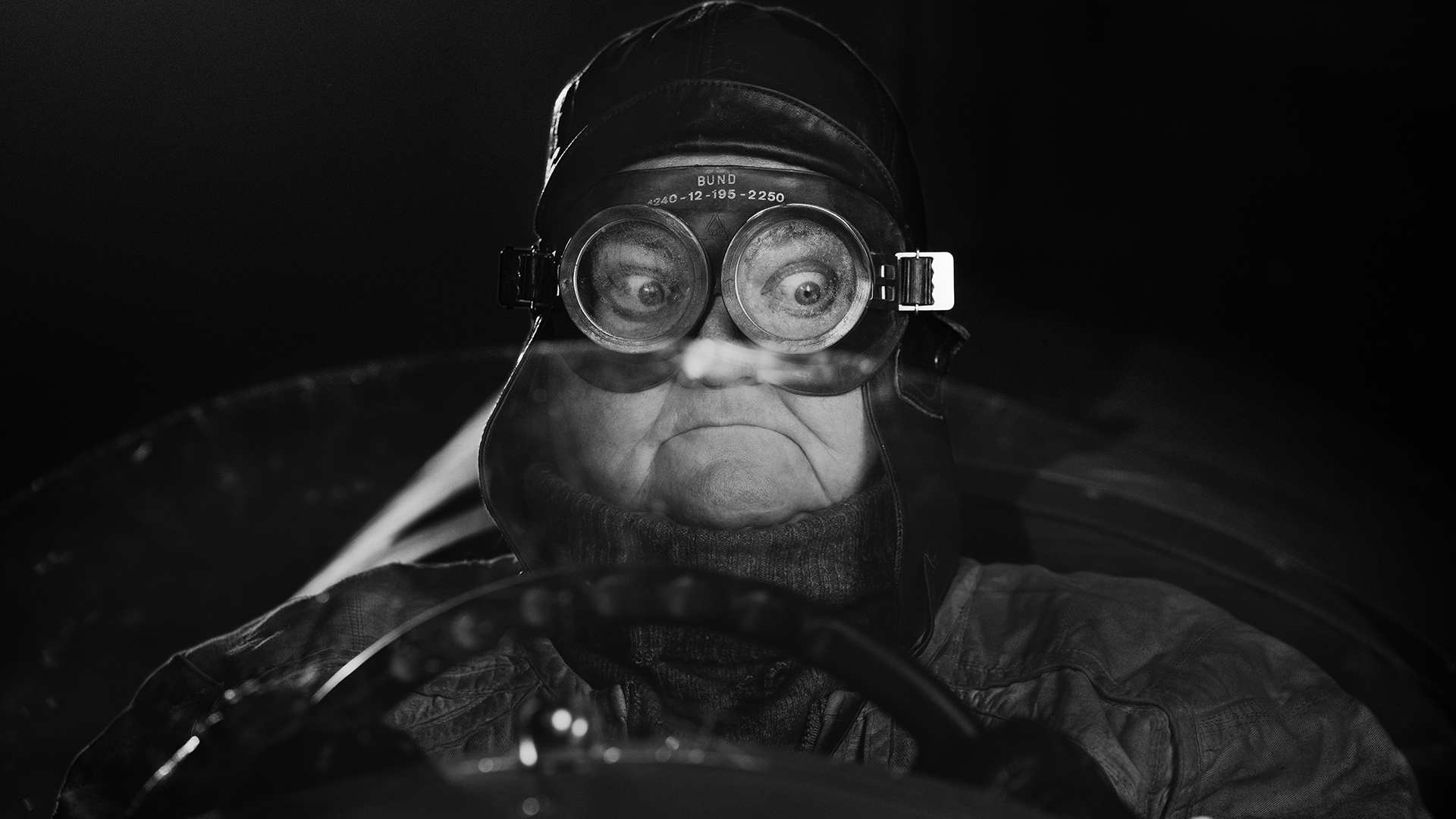In our Epiphany cinema concert, the HPO performs live music to Kuosmanen's award-winning silent film trilogy.
“I began working on my silent film trilogy in the early 2010s. I wanted to make a cinematic performance in which all the sounds would be created as a live performance, while a film projector in the middle of the hall would project the play of light and shadow onto the screen,” says film director Juho Kuosmanen. In our Epiphany cinema concert, Kuosmanen's award-winning trilogy can be seen and heard, accompanied by the HPO. The music composed by the Ykspihlaja Kino Orchestra has been arranged for the symphony orchestra by Mateusz Gwizdałła, who also conducts the concert.
The cinema concert will start with an artist meeting with director Juho Kuosmanen and guitarist Miika Snåre of the Ykspihlaja Kino Orchestra.
Composition: Ykspihlaja Kino Orchestra
Anna Airola
Laura Airola
Oona Airola
Tuomas Asanti
Reetta Kuisma
Miia Reko
Miika Snåre
Ilkka Tolonen
The Triangle of Hope
The three silent movies collectively known as The Triangle of Hope by the Finnish film director and writer Juho Kuosmanen (b. 1979) are full of shrewd insight and gentle humour. They are set in history or mythical places, and each is like a little love letter to earlier cinema. Viewed through Kuosmanen’s prism, the world in fact looks very reassuring.
In Romu-Mattila ja kaunis nainen (Scrap-Mattila and the Beautiful Woman, 2012) Kuosmanen wanted to do more than just a pastiche. A man barred from home seeks buyers for his scrap. Salaviinanpolttajat (Moonshiners, 2017) is a tongue-in-cheek remake of Finland’s first drama film, subsequently lost, of the same name (1907). In Kuosmanen’s version two siblings inherit all the essentials for a good life: moonshine equipment and a pig. As they embark on their journey, business is good until a card shark arrives. Kaukainen planeetta (A Distant Planet, 2023) is a story about the end of everything, whatever that means. Paradoxically, it was filmed in a studio, unlike its predecessors (Scrap-Mattila in Kuosmanen’s home town, Kokkola). By the time this film was made, his feature film Compartment No. 6 (2021) had won the Grand Prix at Cannes, an honour so far shared by only one other Finn, Aki Kaurismäki.
One special feature of silent film is, according to Kuosmanen, that, unlike mainstream cinema, which aims to flood the senses with colour and sound, it persuades the viewer to forget the constraints of realism. The director can draw on the devices of the fairytale, and its characters do not need to be credible. The psychological realism and nuances of Kuosmanen’s feature films are counterbalanced in the silent trilogy by a different susceptibility.
The silent trilogy has won great international acclaim, headed by Il Cinema Ritrovato, a leading event focusing on classics, in Bologna, Italy in June 2024. As on that occasion, the screening and its music will be accompanied at the Helsinki Music Centre by Heikki Kossi and Pietu Korhonen with Foley sound effects to enhance the auditory experience.
Kalle Kinnunen
Juho Kuosmanen
Juho Kuosmanen (b. 1979) is a Finnish film director. He has achieved international recognition with his successful works at the Cannes Film Festival, including Compartment No. 6 (2021) and The Happiest Day in the Life of Olli Mäki (2016). Compartment No. 6 was awarded the Grand Prix and was eventually shortlisted for the Best International Feature Film Oscar. The Happiest Day in the Life of Olli Mäki won the Un Certain Regard prize at Cannes and was also selected for the Caméra d'Or category. In Finland, both films received eight Jussi Awards each, including Best Director.
Kuosmanen began working on a silent film trilogy in the early 2010’s. “I wanted to create a cinematic performance where all the sounds would be produced live, while a film projector in the middle of the hall would project the play of light and shadow onto the screen,” says Kuosmanen. In the Epiphany concert, his award-winning trilogy will be accompanied by the Helsinki Philharmonic Orchestra.
Juho Kuosmanen is a graduate of the University of Art and Design Helsinki (2014).
Mateusz Gwizdałła
Mateusz Gwizdałła (b. 1993) is an Australian-Polish conductor-composer based in Finland. He is currently completing his studies in orchestral conducting in the Sibelius Academy under the guidance of Professor Sakari Oramo. For the Epiphany cinema concert at Musiikkitalo, Gwizdałła has arranged the music for the symphony orchestra and will also conduct the Helsinki Philharmonic Orchestra.
Gwizdałła graduated with a Master’s degree in symphonic and operatic conducting from Fryderyk Chopin University of Music, Warsaw (2019). Raised in Melbourne, Australia, he first trained as a trumpet player and holds a double Bachelor’s degree in Jazz Composition and Performing Arts from Monash University (2016).
Violin 1
Kreeta-Julia Heikkilä
Katariina Jämsä
Helmi Kuusi
Elina Lehto
Ilkka Lehtonen
Kari Olamaa
Petri Päivärinne
Kalinka Pirinen
Harry Rayner
Satu Savioja
Elina Viitasaari
Serguei Gonzalez Pavlova
Sanna Kokko
Alexis Mauritz
Violin 2
Anna-Leena Haikola
Kamran Omarli
Teppo Ali-Mattila
Heini Eklund
Dhyani Gylling
Matilda Haavisto
Anna-Maria Huohvanainen
Krista Rosenberg
Angeles Salas Salas
Virpi Taskila
Johannes Hakulinen
Tuuli Talvitie
Viola
Lotta Poijärvi
Petteri Poijärvi
Aulikki Haahti-Turunen
Kaarina Ikonen
Tiila Kangas
Carmen Moggach
Liisa Orava
Markus Sallinen
Anu Airas
Iiris Rannikko
Cello
Lauri Kankkunen
Beata Antikainen
Jaakko Rajamäki
Jaani Helander
Veli-Matti Iljin
Saara Särkimäki
Tommi Wesslund
Päivi Ahonen
Bass
Paul Aksman
Miranda Erlich
Oskari Hänninen
Eero Ignatius
Tomi Laitamäki
Adrian Rigopulos | Flute
Niamh McKenna
Jenny Villanen
Oboe
Paula Malmivaara
Nils Rõõmussaar
Clarinet
Heikki Nikula
Paolo Poma
Bassoon
Markus Tuukkanen
Mikko-Pekka Svala
Horn
Ville Hiilivirta
Miska Miettunen
Joonas Seppelin
Satu Huuskonen
Trumpet
Pasi Pirinen
Michael Olsen
Trombone
Anu Fagerström
Jussi Vuorinen
Anna-Liisa Räsänen
Tuba
Ilkka Marttila
Timpani
Tomi Wikström
Percussion
Xavi Castelló Aràndiga
Mikael Sandström
Pasi Suomalainen
Harp
Anni Kuusimäki |

